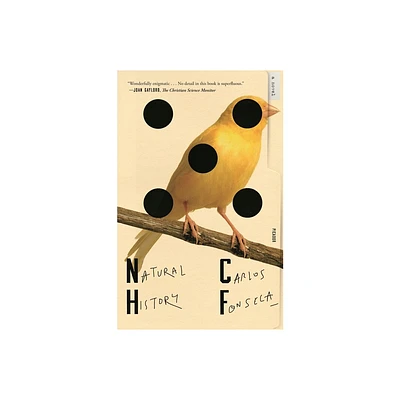Home
Hymenoptera: The Natural History and Diversity of Wasps, Bees and Ants
Loading Inventory...
Barnes and Noble
Hymenoptera: The Natural History and Diversity of Wasps, Bees and Ants
Current price: $95.00


Barnes and Noble
Hymenoptera: The Natural History and Diversity of Wasps, Bees and Ants
Current price: $95.00
Loading Inventory...
Size: OS
*Product Information may vary - to confirm product availability, pricing, and additional information please contact Barnes and Noble
A treasure.
Hymenoptera
highlights these insects in an incredibly rich selection of color photographs and text, that serve both in identification and to illuminate their lives and strategies. It is hugely pleasing. Superb.
Bernd Heinrich, biologist and author
Winner of the 2024 Dartmouth Medal for most outstanding reference work, an annual award presented by the expert reference and collection development librarians of the Reference and User Services Association (RUSA), a division of the American Library Association (ALA).
Stephen A. Marshall's natural history titles
Insects: Their Natural History and Diversity
,
Beetles: The Natural History and Diversity of Coleoptera
and
Flies: The Natural History and Diversity of Diptera
are among the most respected books on the insect world published in the last 20 years. More admirable than the books' rigorous science, however, is that they are wholly suitable for a lay audience, including high school students interested in entomology. The books have been adopted as classroom texts at the university level and are on the reference shelves of many practicing entomologists.
In
, Marshall has applied his broad knowledge of insects to the world of wasps, bees and ants. The subject of this book is an enormous one, since Hymenoptera is arguably the largest order of living things. Comprehensive and packed with richly illustrated keys and thousands of color photographs identified with help from many of the world's best hymenopterists, this volume provides the reader with a colorful and enjoyable introduction to a huge group of organisms, along with an overview of the diversity of fascinating families included in the group.
Marshall opens with a description of what makes a wasp a wasp, and then introduces the diversity, importance and natural history of the order with copious examples and explanations. Topics include the life histories of wasps, Hymenoptera and plants, Hymenoptera in history, culture and fiction, kleptoparasitism, and many more.
Part two of
is a guided tour of the diversity of the order, with fascinating stops for almost all of the world's 100 or so families of wasps as well as most of the significant subfamilies. Thousands of photos, almost all taken in the field by the author, are used to capture the range of form and function in each family, with pages of photographs of the popular groups such as bees, hornets and ants but also with little-known groups ranging from pincer wasps to fairyflies. Essential information about importance, range, behavior and biology is provided for each group, and easy-to-use photographic keys to most families are provided for those wishing to use the book as an identification guide.
Like Marshall's companion titles,
will be welcomed by the scientific, academic and naturalist communities, as well as the next generation of entomologists.
Hymenoptera
highlights these insects in an incredibly rich selection of color photographs and text, that serve both in identification and to illuminate their lives and strategies. It is hugely pleasing. Superb.
Bernd Heinrich, biologist and author
Winner of the 2024 Dartmouth Medal for most outstanding reference work, an annual award presented by the expert reference and collection development librarians of the Reference and User Services Association (RUSA), a division of the American Library Association (ALA).
Stephen A. Marshall's natural history titles
Insects: Their Natural History and Diversity
,
Beetles: The Natural History and Diversity of Coleoptera
and
Flies: The Natural History and Diversity of Diptera
are among the most respected books on the insect world published in the last 20 years. More admirable than the books' rigorous science, however, is that they are wholly suitable for a lay audience, including high school students interested in entomology. The books have been adopted as classroom texts at the university level and are on the reference shelves of many practicing entomologists.
In
, Marshall has applied his broad knowledge of insects to the world of wasps, bees and ants. The subject of this book is an enormous one, since Hymenoptera is arguably the largest order of living things. Comprehensive and packed with richly illustrated keys and thousands of color photographs identified with help from many of the world's best hymenopterists, this volume provides the reader with a colorful and enjoyable introduction to a huge group of organisms, along with an overview of the diversity of fascinating families included in the group.
Marshall opens with a description of what makes a wasp a wasp, and then introduces the diversity, importance and natural history of the order with copious examples and explanations. Topics include the life histories of wasps, Hymenoptera and plants, Hymenoptera in history, culture and fiction, kleptoparasitism, and many more.
Part two of
is a guided tour of the diversity of the order, with fascinating stops for almost all of the world's 100 or so families of wasps as well as most of the significant subfamilies. Thousands of photos, almost all taken in the field by the author, are used to capture the range of form and function in each family, with pages of photographs of the popular groups such as bees, hornets and ants but also with little-known groups ranging from pincer wasps to fairyflies. Essential information about importance, range, behavior and biology is provided for each group, and easy-to-use photographic keys to most families are provided for those wishing to use the book as an identification guide.
Like Marshall's companion titles,
will be welcomed by the scientific, academic and naturalist communities, as well as the next generation of entomologists.


















